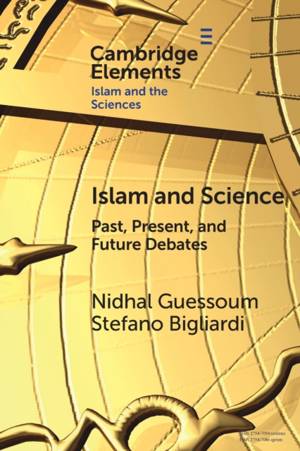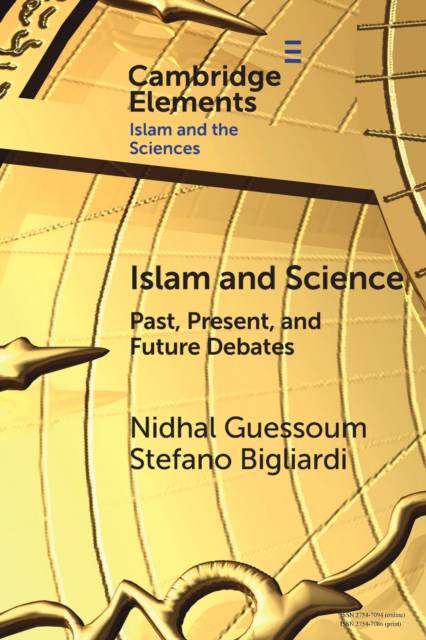
Je cadeautjes zeker op tijd in huis hebben voor de feestdagen? Kom langs in onze winkels en vind het perfecte geschenk!
- Afhalen na 1 uur in een winkel met voorraad
- Gratis thuislevering in België vanaf € 30
- Ruim aanbod met 7 miljoen producten
Je cadeautjes zeker op tijd in huis hebben voor de feestdagen? Kom langs in onze winkels en vind het perfecte geschenk!
- Afhalen na 1 uur in een winkel met voorraad
- Gratis thuislevering in België vanaf € 30
- Ruim aanbod met 7 miljoen producten
Zoeken
€ 33,45
+ 66 punten
Omschrijving
This first Element in the series Islam and the Sciences is introductory and aims to give readers a general overview of the wide and rich scope of interactions of Islam with the sciences, including past disputes, current challenges, and future outlooks. The Element introduces the main voices and schools of thought, adopting a historical approach to show the evolution of the debates: Khan's naturalism, al-Jisr's hermeneutics, Abduh's modernist Islam, Nasr's perennialist and sacred science, al-Attas's Islamic science, Sardar and the Ijmalis' ethical science, al-Faruqi's Islamization of knowledge/science, Bucaille's and El-Naggar's 'miraculous scientific content in the Qur'an, ' Abdus Salam's universal science, Hoodbhoy's and Edis's secularism, and the harmonization of the 'new generation.' The Element also maps out new and emerging topics that are beginning to reignite the debates, before a concluding section examines how issues of Islam and Science are playing out in the media, in public discourse and in education.
Specificaties
Betrokkenen
- Auteur(s):
- Uitgeverij:
Inhoud
- Aantal bladzijden:
- 84
- Taal:
- Engels
- Reeks:
Eigenschappen
- Productcode (EAN):
- 9781009266512
- Verschijningsdatum:
- 23/03/2023
- Uitvoering:
- Paperback
- Formaat:
- Trade paperback (VS)
- Afmetingen:
- 152 mm x 229 mm
- Gewicht:
- 122 g

Alleen bij Standaard Boekhandel
+ 66 punten op je klantenkaart van Standaard Boekhandel
Beoordelingen
We publiceren alleen reviews die voldoen aan de voorwaarden voor reviews. Bekijk onze voorwaarden voor reviews.









